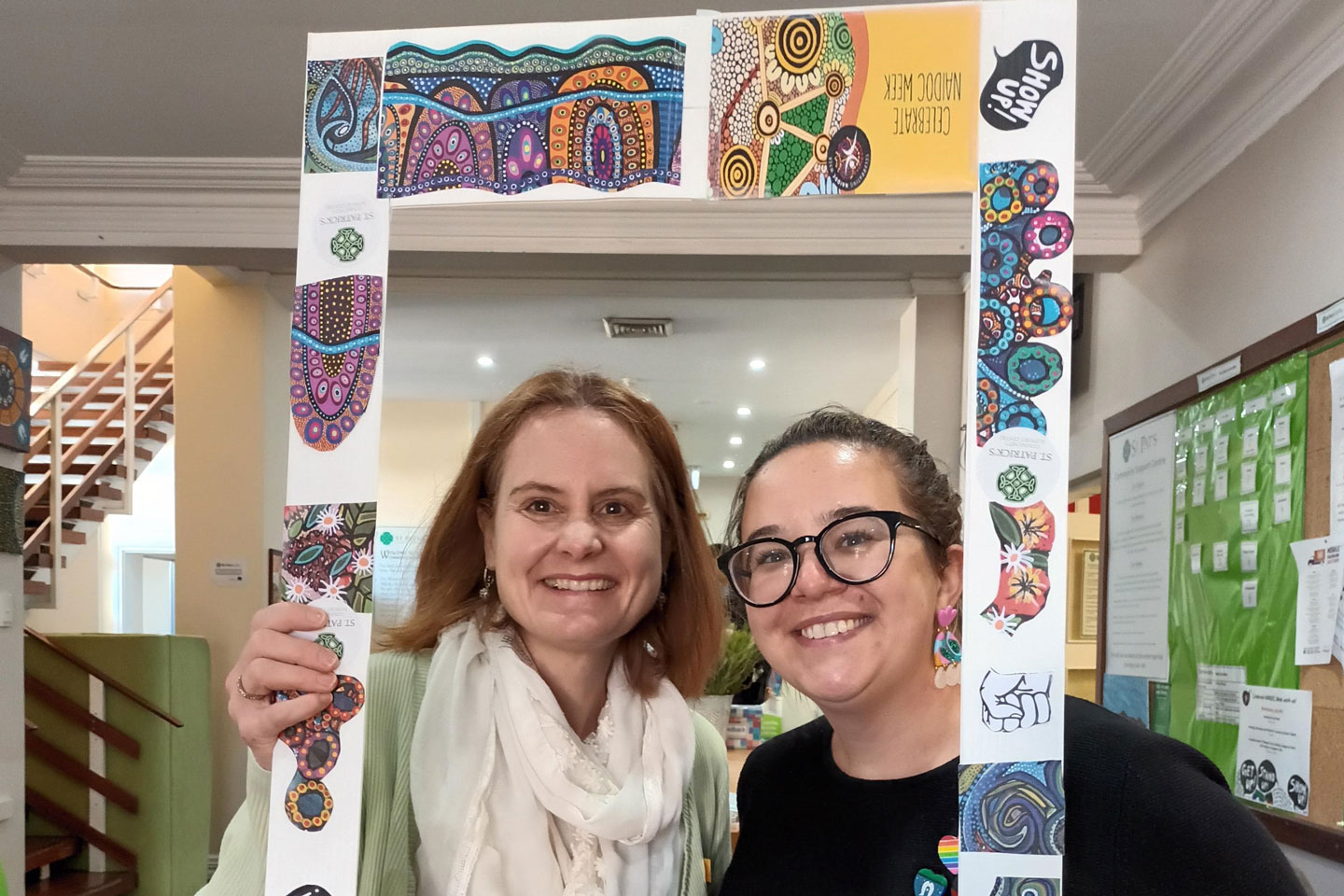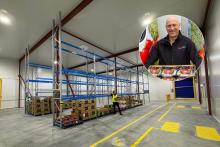

The attraction of working in the not-for-profit sector for many is the chance to make a difference and change lives.
It’s a common refrain across all of St Patrick’s Community Support Centre (St Pat’s) leadership team, none of who planned to work in not-for-profits but found themselves drawn to community service out of a desire for more fulfilling professional lives.
St Pat’s Aboriginal services manager Pauline Boscato believes psychology has a role to play in why women are drawn to community services.
“I think that there is a gender psychology around women,” Ms Boscato said.
“As they grow, they develop out of a sense of connecting and caring for others.
“The nurturing, mothering, caring, connecting, bringing together and problem solving. Whereas men grow along status seeking.”
Ms Boscato recently joined the St Pat’s team after 20 years working in the public sector, for the Department of Justice.
Her role gave her a unique insight into what happens when women are deprived of a maternal role model.
“You see it with the Stolen Generations,” Ms Boscato said.
“The one thing that stops women from developing into those roles is being the victims of adverse experiences.”
St Pat’s support services manager Kim Rawson said whether it was nature or nurture, women had always been in the caring, community service space.
“You have to unpack a lot of systemic issues to get to the core of why women are attracted to the sector,” Ms Rawson said.
“Is it something we’ve always done because we love it, or is it something that we’ve done because it’s expected of us by society?”
The pair say they feel safer working in a not-for-profit organisation, where they have a licence to think and work in an imaginative, collaborative and progressive way.
“Conglomerates and government tend to like the static thinker as it is potentially safer, but that can make them unwelcoming for the creative and dynamic thinker,” Ms Boscato said.
“I think when NFPs are led by – and adopt – a culture of progressiveness and creativity, there is a greater attraction for creative and progressive people.”
Turning the tables
Ms Boscato said she had sat at many tables where she had felt like a ‘diversity hire’.
“If you’re a woman, you’ve got to work 200 per cent harder to prove yourself and if you’re an Aboriginal woman, you’ve got to work 400 per cent harder,” she said.
“People make assumptions about you, so before I even open my mouth, the facts I’m presenting are already diluted.
“And you end up doing so much research and work, in your own time; you’re up until 3am preparing for a meeting at 8am, because you know you can’t afford to be unprepared or make a mistake, because then everything else you’ve said will be written off.
“I’ve had that self-doubt since I was eight years old and I was told I couldn’t learn anything, because I was an Aboriginal and had a small brain.
Ms Rawson said: “If you’ve got the privilege to be sitting at the table, don’t congratulate yourself for being there, look around and go, well, who isn’t at the table? What voices are we missing? And then pause the meeting and bring them in.”

St Pat’s engagement and inclusion manager Tania Payne
For St Pat’s engagement and inclusion manager Tania Payne, what matters is being part of an organisation which improves outcomes for individuals by ensuring they are supported and connected to the best services they need.
Ms Payne oversees the extensive suite of services delivered at St Pat’s Day Centre, a job which requires agility, flexibility and the management of a large team of both staff and volunteers.
Her work in the mental health and public sectors, at the Department of Child Protection, meant she was used to working in all-women teams.
Ms Payne said her experience working under female team leaders was integral to helping her grow and develop her own leadership style.
“We’re quite lucky in the NFP sector, because that’s where most of the women leaders are,” she said.
“I did my leadership training in Sydney a couple of years ago, and the two of us in the room from NFPs were the only ones without a male CEO and/or executive team.”
Chance to change workplace – for the better
Working for an NFP has many benefits, as well as some challenges.
When it comes to the question of an NFP being female-friendly, Foodbank WA marketing and communications manager Moira Aynsley believes every organisation is different.
“I don’t think it is necessarily (the) sector, rather the leaders in any organisation,” Mrs Aynsley said.
“I have had the honour of learning from a number of amazing leaders, both female and male.
“They have inspired, challenged, advocated and opened doors for me. For that, I am incredibly grateful. I hope to lead the way for my team members now and in the future.”
Working in an NFP empowers Mrs Aynsley to use her professional skills ‘for good’.
“Even on bad days you can leave the office knowing you have made a difference in the community, and that is a great feeling," she said.
One of the biggest challenges Mrs Aynsley has faced is a common misconception that an NFP role is easier.

Foodbank WA marketing and communications manager Moira Aynsley
She said there was a view that choosing to work in NFP meant you could not hack it in the corporate world.
For many, working in the NFP sector is not as financially rewarding as in other sectors, but there is more to life than money.
“I get immense satisfaction and drive for making a difference in our community,” Mrs Aynsley said.
“But I do find I often have to prove the value of my knowledge and skills, even though I have almost 20 years’ experience in marketing, communications and leadership across a range of industries."
Mrs Aynsley has applied her career experience and expertise across the organisation and believes the key to success and climbing the corporate ladder, is to speak up.
“Too many times I see younger workers holding back, but sadly more often it’s females who are quiet in meetings, not putting their ideas forward or not challenging the status quo,” she said.
“Speak up, you have value, and you will be respected for it.”













